Filter by
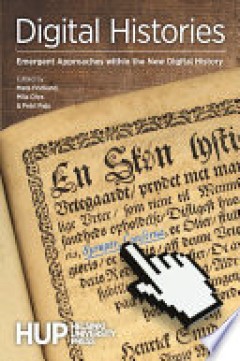
Digital Histories: Emergent Approaches within the New Digital History
Historical scholarship is currently undergoing a digital turn. All historians have experienced this change in one way or another, by writing on word processors, applying quantitative methods on digitalized source materials, or using internet resources and digital tools. Digital Histories showcases this emerging wave of digital history research. It presents work by historians who – on their ow…
- Edition
- -
- ISBN/ISSN
- 9789523690219
- Collation
- -
- Series Title
- -
- Call Number
- 025.069 FRI d
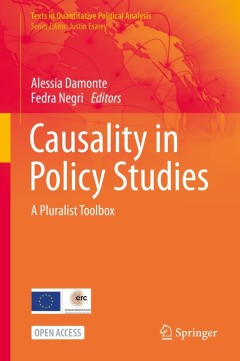
Causality in Policy Studies: a Pluralist Toolbox
This volume provides a methodological toolbox for conducting policy research. Recognizing that policy research spans various academic disciplines, each of which takes a different view on causality, the volume introduces a methodologically pluralistic approach to policy studies. Each chapter clarifies the research question that each technique can answer, the research design and data treatment th…
- Edition
- -
- ISBN/ISSN
- 9783031129827
- Collation
- X, 274p ; ill.
- Series Title
- Texts in Quantitative Political Analysis
- Call Number
- 320 CAU c
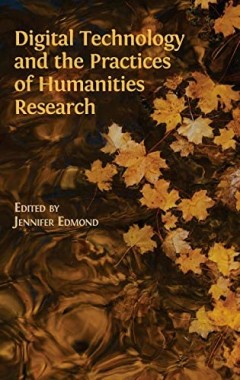
Digital technology and the practices of humanities research
This timely volume illuminates the different forces underlying the shifting practices in humanities research today, with especial focus on how humanists take ownership of, and are empowered by, technology in unexpected ways. Digital Technology and the Practices of Humanities Research is essential reading for scholars, students, and general readers interested in the changing culture of research …
- Edition
- -
- ISBN/ISSN
- 9781783748419
- Collation
- xi, 267p. : ill.
- Series Title
- -
- Call Number
- 001.3072 DIG d
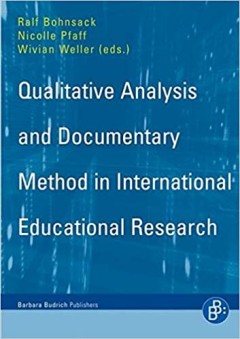
Qualitative analysis and documentary method
You need to work with qualitative methods, especially the Documentary Method? This is your book: The first systematic introduction related to the application of the Documentary Method on group discussions, interviews, films and pictures. Since the book is based on a German- Brazilian cooperation, it also provides an overview of the state of the art in Germany and Brazil with regards to Educatio…
- Edition
- -
- ISBN/ISSN
- 9783866492363
- Collation
- -
- Series Title
- 371p : ill.
- Call Number
- 370.72 RAL q
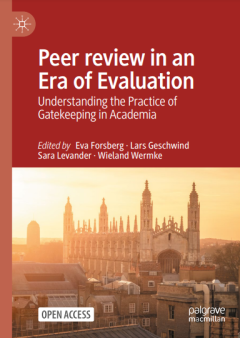
Peer review in an Era of Evaluation : Understanding the Practice of Gatekeepi…
This open access volume explores peer review in the scientific community and academia. While peer review is as old as modern science itself, recent changes in the evaluation culture of higher education systems have increased the use of peer review, and its purposes, forms and functions have become more diversified. This book put together a comprehensive set of conceptual and empirical contribut…
- Edition
- -
- ISBN/ISSN
- 9783030752637
- Collation
- 412 p ; ill
- Series Title
- -
- Call Number
- 001.4 PEE E
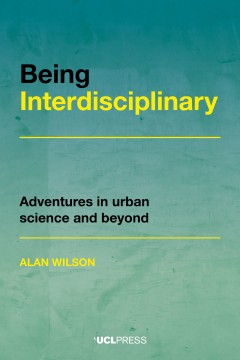
BEING INTERDISCIPLINARY : adventures in urban science and beyond
In Being Interdisciplinary, Alan Wilson draws on five decades as a leading figure in urban science to set out a systems approach to interdisciplinarity for those conducting research in this and other fields. He argues that most research is interdisciplinary at base, and that a systems perspective is particularly appropriate for collaboration because it fosters an outlook that sees beyond discip…
- Edition
- -
- ISBN/ISSN
- 9781800082120
- Collation
- ix, 144 p.
- Series Title
- -
- Call Number
- 001.4 BEI A
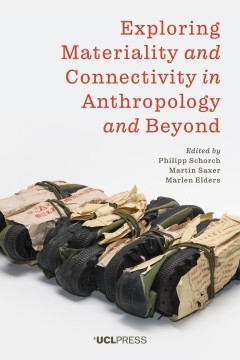
Exploring Materiality and connectivity in anthropology and beyond
Exploring Materiality and Connectivity in Anthropology and Beyond provides a new look at the old anthropological concern with materiality and connectivity. It understands materiality not as defined property of some-thing, nor does it take connectivity as merely a relation between discrete entities. Somewhat akin to Heisenberg’s uncertainty principle, it sees materiality and connectivity as tw…
- Edition
- -
- ISBN/ISSN
- 9781787357488
- Collation
- xvii, 259 p. ill;
- Series Title
- -
- Call Number
- 306 EXP P
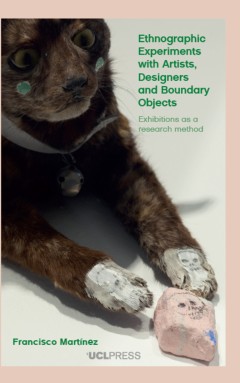
Ethnographic experiments with artists, designers and boundary objects : exhib…
Ethnographic Experiments with Artists, Designers and Boundary Objects is a lively investigation into anthropological practice. Richly illustrated, it invites the reader to reflect on the skills of collaboration and experimentation in fieldwork and in gallery curation, thereby expanding our modes of knowledge production. At the heart of this study are the possibilities for transdisciplinary coll…
- Edition
- -
- ISBN/ISSN
- 9781800081086
- Collation
- xiii, 201 p. ill;
- Series Title
- -
- Call Number
- 708 ETH F
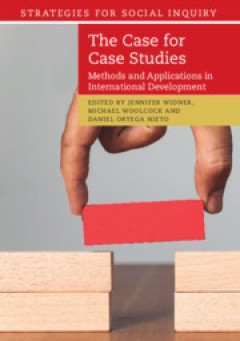
The Case for Case Studies : Methods and Applications in International Develop…
This book seeks to narrow two gaps: first, between the widespread use of case studies and their frequently 'loose' methodological moorings; and second, between the scholarly community advancing methodological frontiers in case study research and the users of case studies in development policy and practice. It draws on the contributors' collective experience at this nexus, but the underlying iss…
- Edition
- -
- ISBN/ISSN
- 9781108688253
- Collation
- xiii, 330 p
- Series Title
- -
- Call Number
- 300.72 CAS J
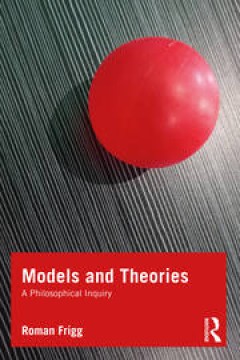
Models and theories : a philosophical inquiry
Models and theories are of central importance in science, and scientists spend substantial amounts of time building, testing, comparing and revising models and theories. It is therefore not surprising that the nature of scientific models and theories has been a widely debated topic within the philosophy of science for many years. The product of two decades of research, th…
- Edition
- -
- ISBN/ISSN
- 9781003285106
- Collation
- ix, 508 p. ill;
- Series Title
- -
- Call Number
- 507.21 MOD R
 Computer Science, Information & General Works
Computer Science, Information & General Works  Philosophy & Psychology
Philosophy & Psychology  Religion
Religion  Social Sciences
Social Sciences  Language
Language  Pure Science
Pure Science  Applied Sciences
Applied Sciences  Art & Recreation
Art & Recreation  Literature
Literature  History & Geography
History & Geography